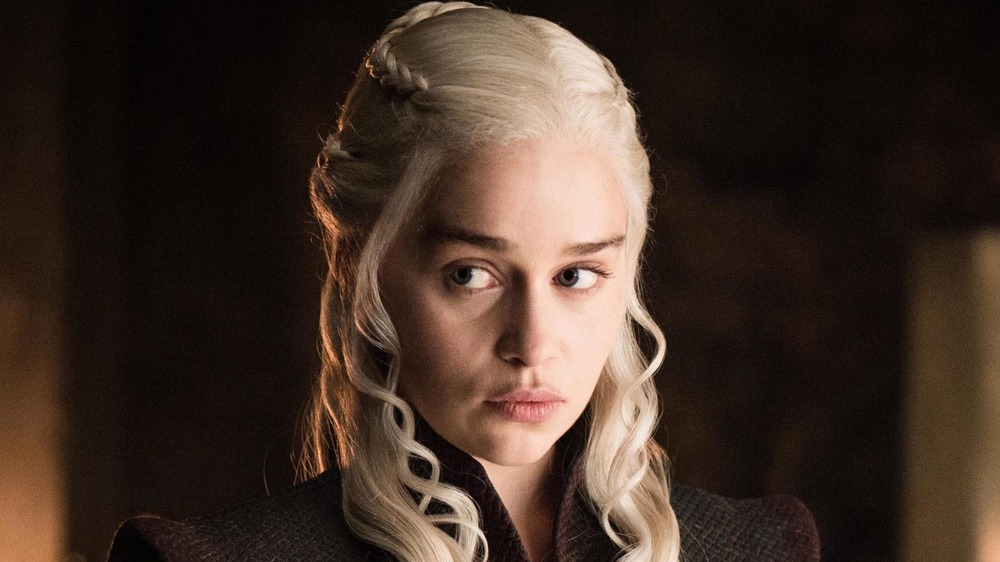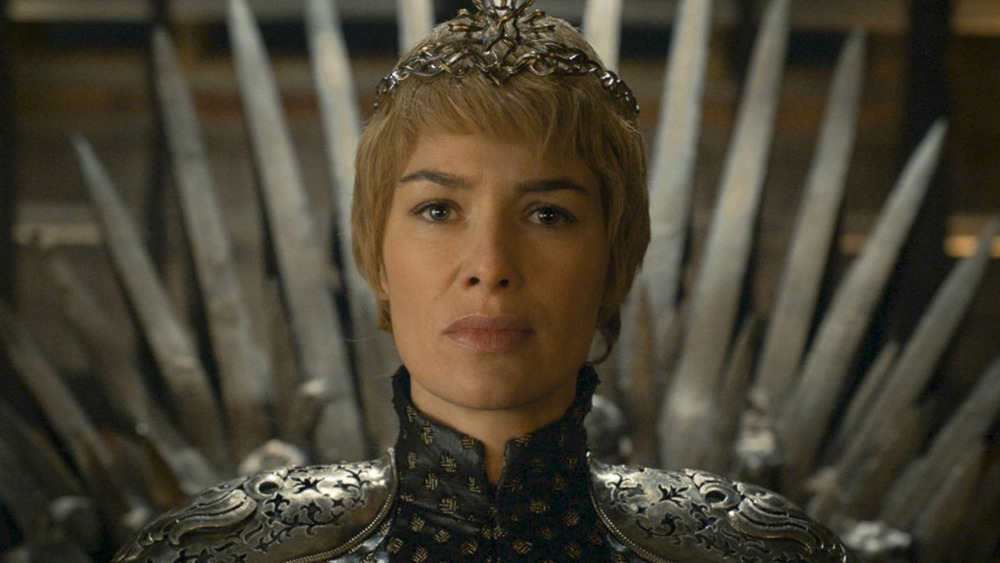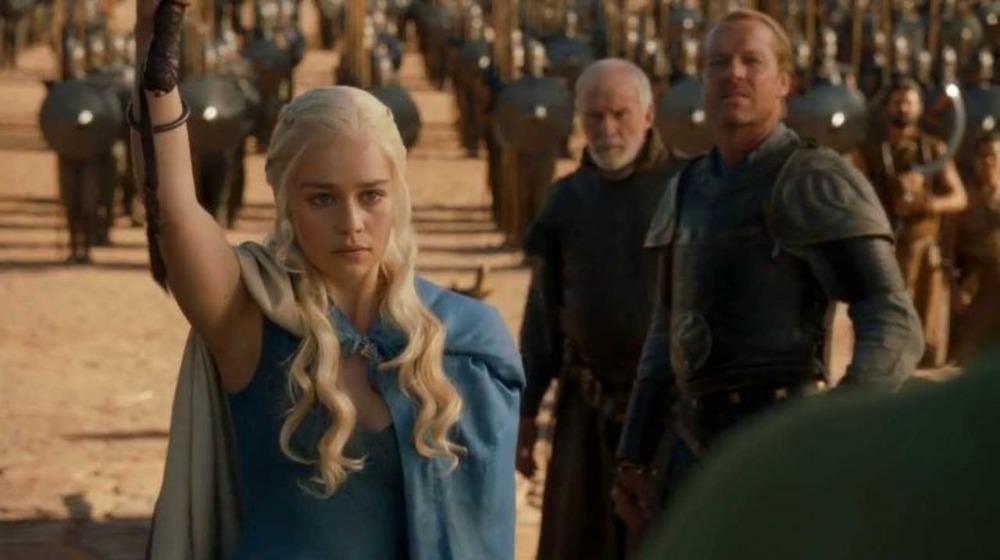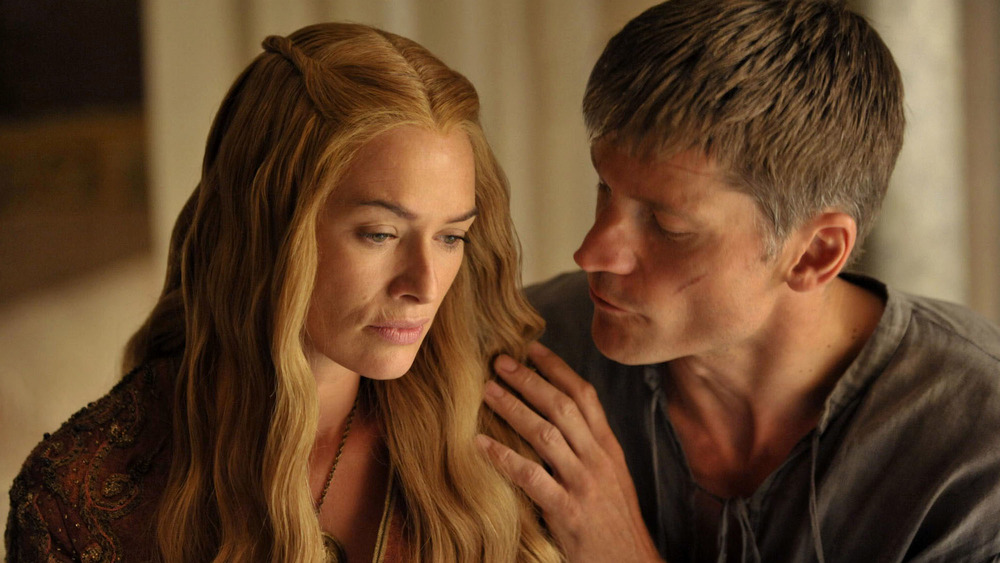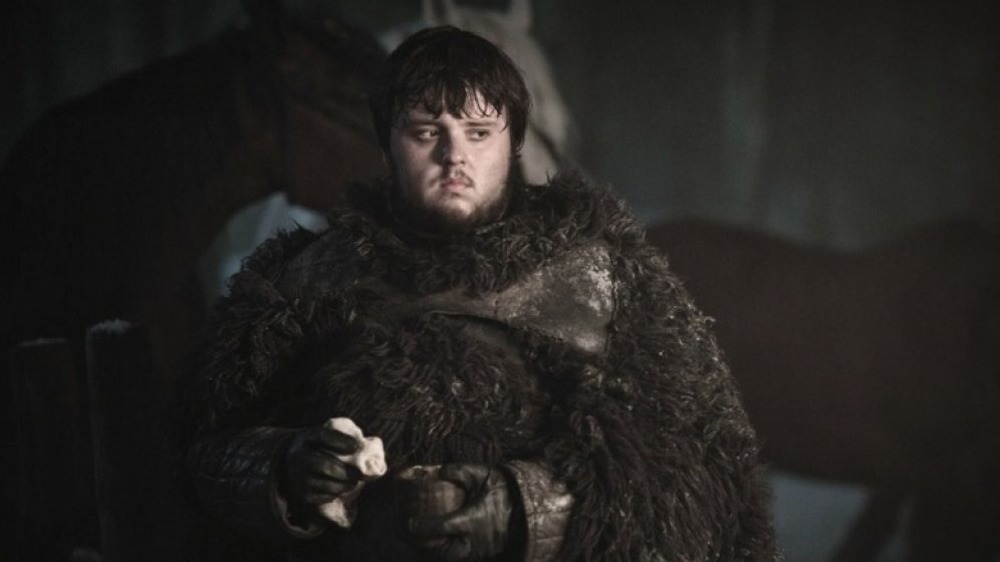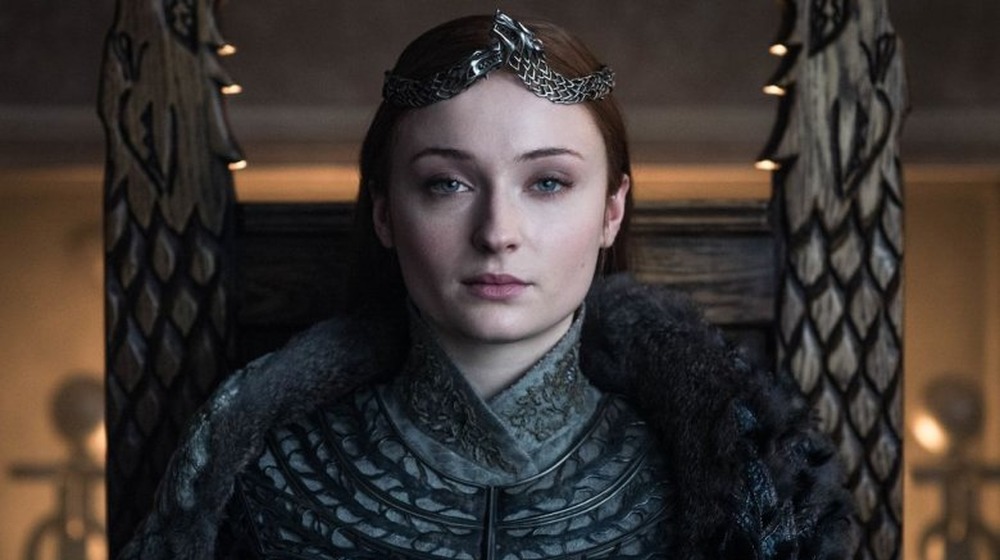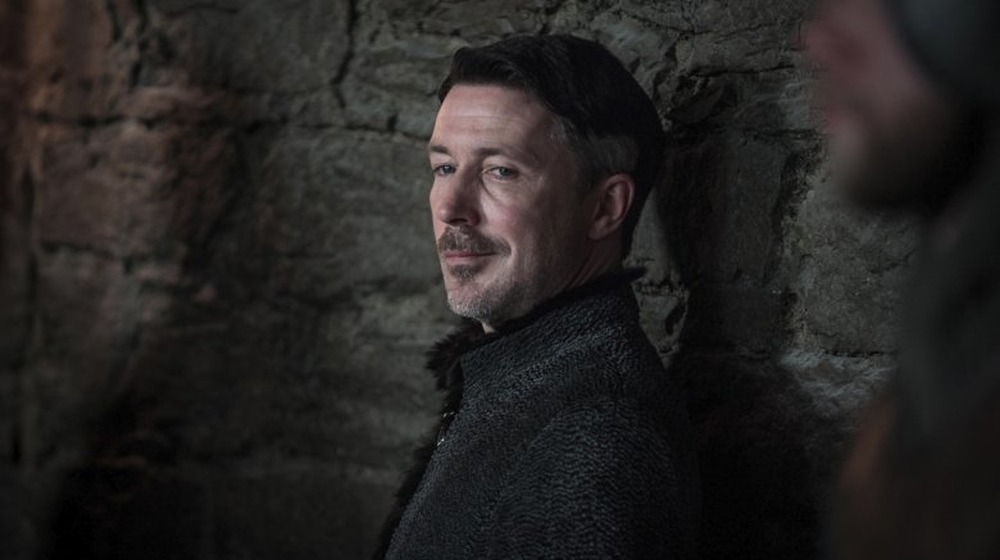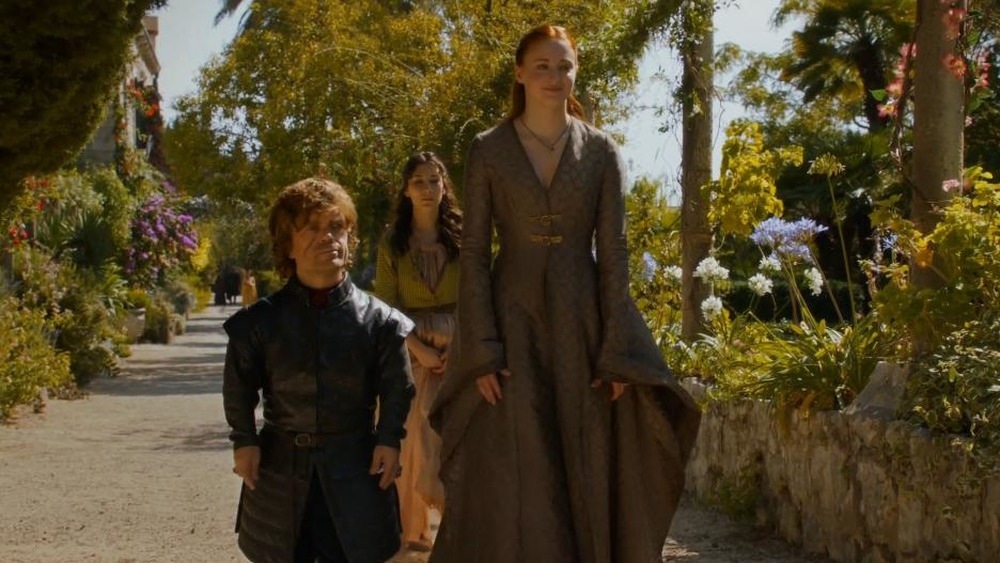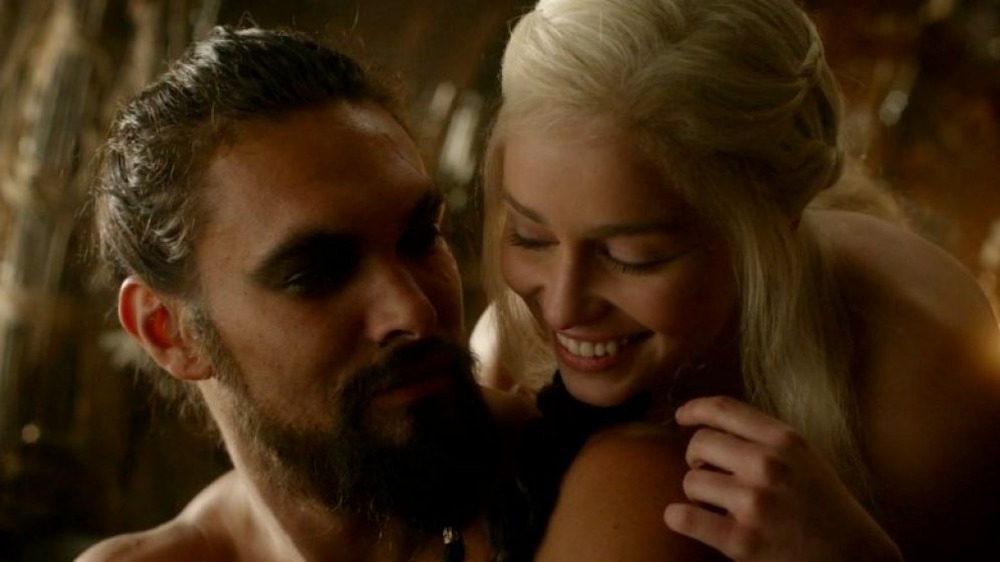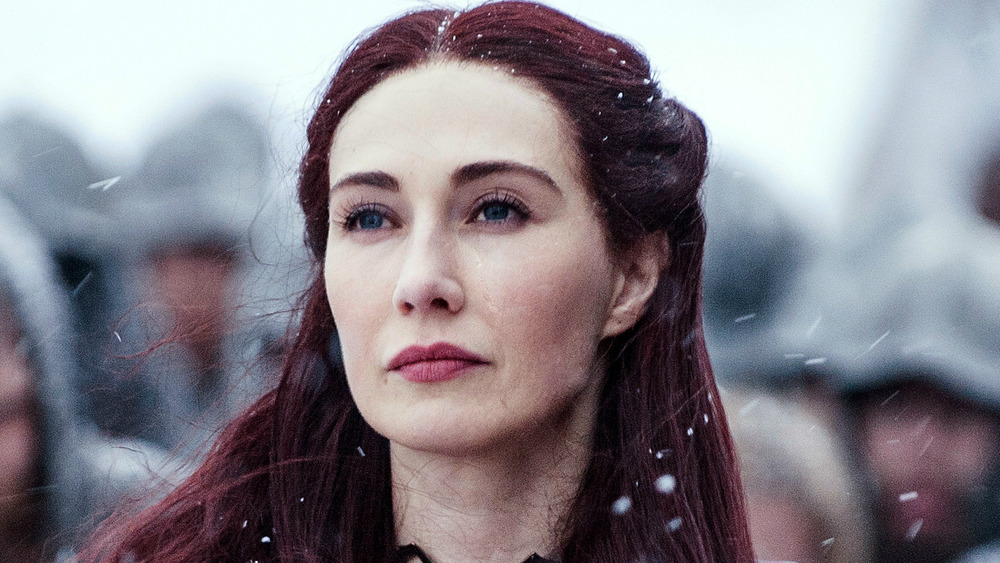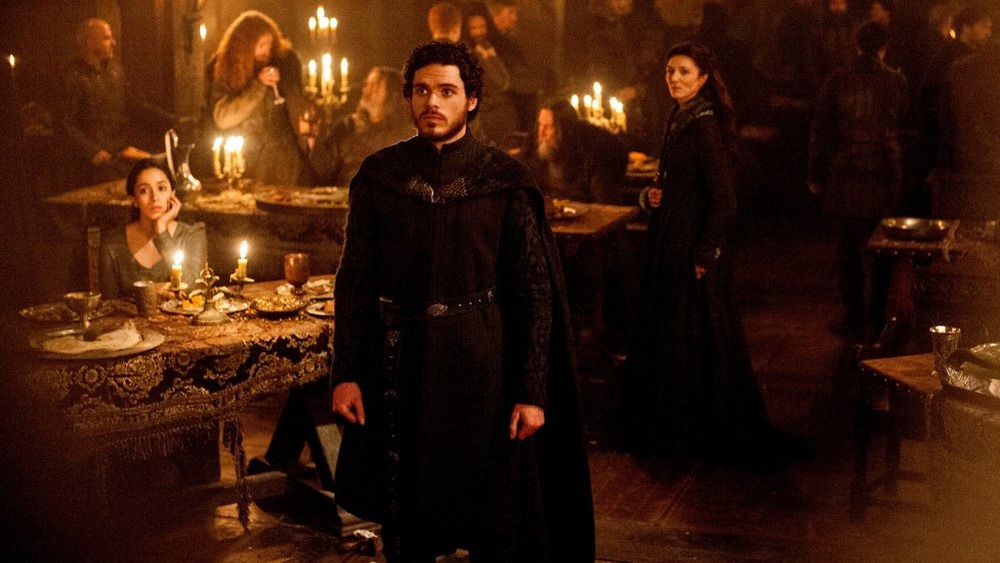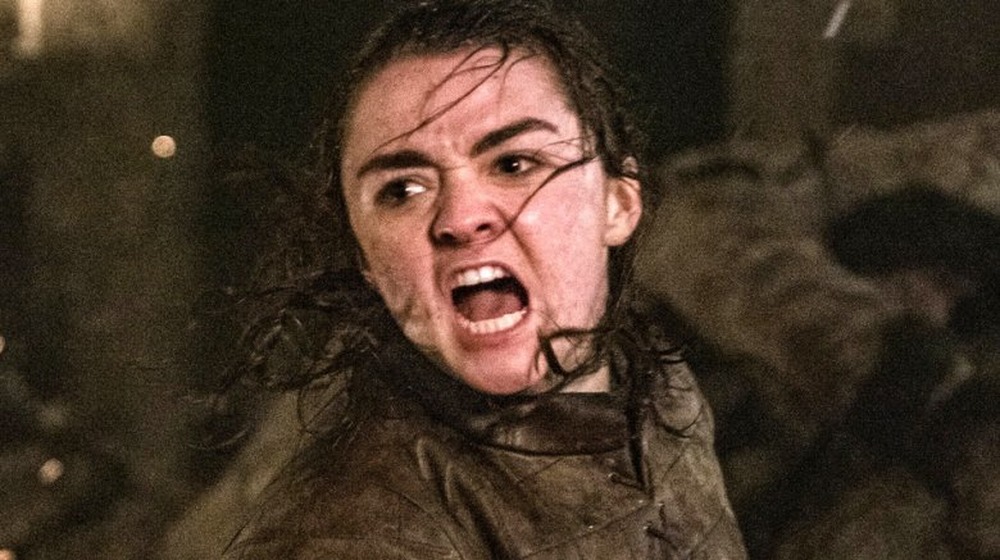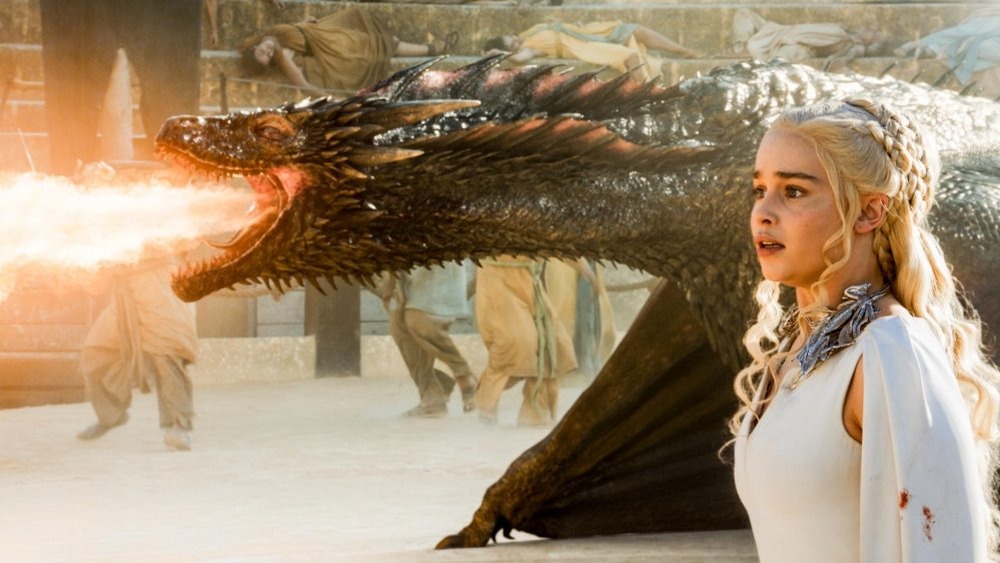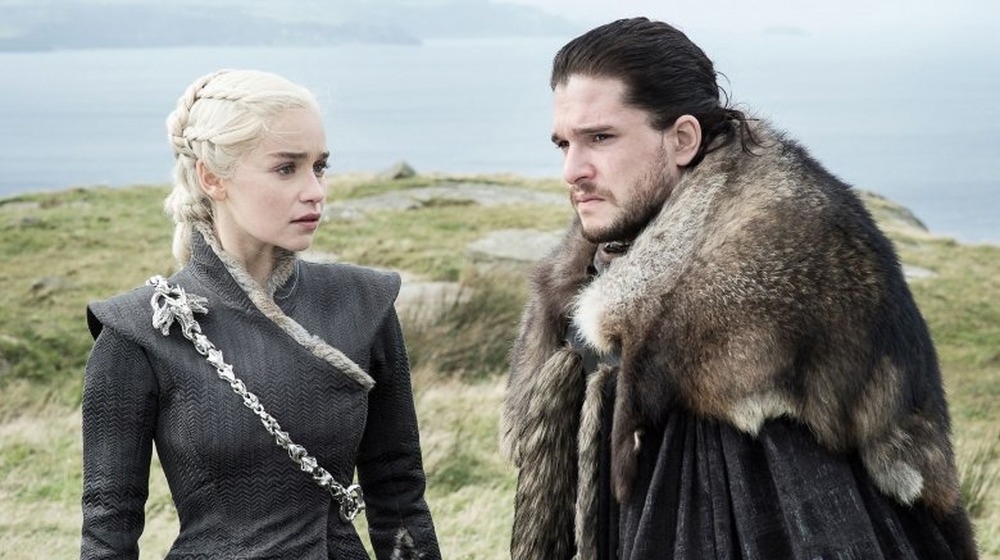Unpopular Opinions About Game Of Thrones That Raise Good Points
After nearly 10 years and eight seasons on HBO, Game of Thrones came to an end in May of 2019, leaving quite a few fans and critics disappointed at its rushed and unpopular crash landing. The long-awaited, much-lamented finale of the blockbuster series provided unsatisfying answers, undid character arcs, and hurtled towards an endpoint that showrunners David Benioff and D.B. Weiss had determined years beforehand. Though author George R.R. Martin has yet to finish the book series the show is based on, fans have been left wondering if its ending will make up for the series' rough climax.
There's no doubt that throughout Game of Thrones' tenure on television, it stirred up any number of controversies, from unpopular subplots (Dorne, anyone?) to issues regarding diversity, sexual assault, and other sensitive topics. Despite Thrones' amazing moments and undeniable popularity, many of its critics did have a point: There are definitely some issues with Game of Thrones that can't be ignored. Here are just a few unpopular opinions about Game of Thrones that raise good points. Spoilers for all of Game of Thrones ahead!
Cersei was a great strategist and deserved the throne
Throughout Game of Thrones, many different highborn lords, ladies, and royals from throughout Westeros' seven kingdoms battle for control of the realm and a spot on the Iron Throne. But only a few characters actually manage to occupy that vaunted seat of power amidst all the fighting. One of those monarchs is Cersei Lannister (Lena Headey), who begins the series as queen through her loveless marriage to King Robert Baratheon (Mark Addy), eventually ruling independently after losing all of her heirs to various tragedies.
Cersei is, above all, ruthless and cruel, showing precious little mercy to her enemies and sometimes even less mercy to her loved ones. With that said, there's no doubt that Cersei is a shrewd and cunning strategist who plays the game brutally, yet efficiently. Whether she's blowing up entire buildings to off her political enemies or making deals with the Iron Bank, which she repays with entire captured kingdoms, Cersei is a pretty incredible wartime general. If anyone worked harder to earn and keep the Iron Throne than Cersei, you'd be hard-pressed to name them.
Daenerys was never a good leader
While the Lannisters, Starks, and Baratheons fight within Westeros for the Iron Throne, one contender has a much longer journey to make: Daenerys Targaryen (Emilia Clarke). The apparent last heir of an ancient and royal family who lost the Iron Throne to the Baratheon line during Robert's Rebellion, Daenerys, along with her vicious brother Viserys (Harry Lloyd), must travel across the Narrow Sea to Westeros to reclaim her birthright.
For most of the show, viewers rooted for Daenerys — who adopted several monikers, from "Khaleesi" to "Mother of Dragons" — and her three giant, flying dragon children to win the Iron Throne. But those viewers might have been a bit misguided. Right from the beginning, Daenerys shows little mercy to those who oppose her, making rash decisions right and left. Though she claims all of her decisions will bend the moral arc of justice in the right direction, her penchant for vengeance means she ends up having a lot more in common with Cersei Lannister than she'd like to admit. Daenerys may feel entitled to the Iron Throne, but she's not particularly well suited to be Queen of the Seven Kingdoms in the first place ... and when she turns into a full-on tyrant, her nephew and lover, Jon Snow (Kit Harington) takes care of the problem by killing her before she can destroy the world.
Cersei is a sympathetic character
There's no question that Cersei Lannister, who casually orders her enemies to be tortured and murdered on a near constant basis, is one of the show's most important villains. However, if you really think about Cersei's life and journey, it's pretty obvious that the inscrutable Lannister is one of the show's saddest and most honestly sympathetic characters.
Constantly overlooked as a strategist and power player by her father, Tywin Lannister (Charles Dance), Cersei's only mission in life is to marry well. As a result, she weds Robert Baratheon and becomes his queen ... but it definitely isn't meant to be, considering that Robert spends their marriage pining for his lost love, Lyanna Stark. With that in mind, it's not entirely surprising — though still pretty unsettling — that Cersei turns to her twin brother Jaime (Nikolaj Coster-Waldau) for, um, companionship. After Robert's death, Cersei has to try to wrangle her eldest son, Joffrey (Jack Gleeson), who she knows is a sadistic monster. After he dies, she loses her other two children in relatively short order. Cersei is definitely evil, but she's also pretty sad, and deserves some genuine pity.
Sam shouldn't have survived the show
Early in the show, Jon Snow heads to Castle Black to join the Night's Watch, a band of bandits and (literal and figurative) bastards who protect the Wall that divides the far North — which houses everything from wildlings to White Walkers — and the rest of the realm. Upon arriving, Jon is sneered at by poorer boys, thanks to his decent swordsmanship and plush furs, but he finds one friend quickly: Samwell Tarly (John Bradley), a meek and frightened bookworm who has joined the Night's Watch after being disowned by his noble father.
Throughout the series, Sam survives a frankly astounding number of scrapes and skirmishes, from huge battles to face-offs with White Walkers. At one point, Sam is completely surrounded by roving Walkers with nowhere else to turn — and yet he still survives. Sam might be a fan favorite character, but there's honestly no good reason why he makes it through the series intact, aside from serving as an emotional through-line for Jon. Realistically, Sam should have died 10 times over, when you consider the constant danger he's faced. Frankly, he probably should have been killed off halfway through the show.
Sansa should have ruled the Seven Kingdoms
After Daenerys and Cersei fail in their attempts to take each another down and Daenerys' final dragon, Drogon, destroys the Iron Throne once and for all, the highest-born survivors of the conflict must find a new leader. Puzzlingly, they settle on Bran Stark (Isaac Hempstead-Wright), the eldest remaining male heir of the Starks, who has recently taken up the mantle of the Three-Eyed Raven. This has made him an omniscient, inhuman being who might not be fit to lead a kingdom of mortals.
The choice to crown Bran as King of the Seven Kingdoms is particularly confusing when you consider that one of his own family members is a much better option. Sansa Stark (Sophie Turner), who begins the show as a spoiled young girl, spends the series becoming a shrewd yet caring protector, who constantly works hard to make sure that every base is covered, whether in terms of battle or when it comes to feeding her people. Sansa eventually becomes the Queen in the North, but when it comes to ruling the seven kingdoms, she'd be a much better fit than her brother Bran.
Littlefinger deserved a longer life
Game of Thrones' early seasons are defined by its cleverest and most cunning characters, who typically work to move the plot forward and advance their own interests at the same time. A perfect example is Petyr "Littlefinger" Baelish (Aidan Gillen), a self-made lord who will stop at nothing to gain power for himself, pretending to protect anyone he thinks can help his cause. Though he ostensibly loves Catelyn Stark (Michelle Fairley), the matriarch of the Stark family, he betrays her husband Ned (Sean Bean) and looks the other way when Catelyn is endangered. Ultimately, he turns his attention to Sansa, and despite claiming to love her as he loved her mother, he still doesn't look out for her, even forcing her to marry the sadistic Ramsay Bolton (Iwan Rheon).
When Littlefinger tries to cause problems between Sansa and her younger sister Arya (Maisie Williams) after years of separation, the siblings, along with their brother, Bran, figure out his plan and execute him pretty quickly. But when all is said and done, Littlefinger deserved better. Evil as he is, Littlefinger is one of the show's most fascinating players, and the series feels a little lacking without him. Game of Thrones is simply a better show when his conniving is in the mix.
Sansa and Tyrion were meant to be
As a young girl, Sansa hopes to marry the king of Westeros, be his queen, and mother princes and princesses. Unfortunately, her dreams definitely don't come true. After her engagement to King Joffrey is broken off so that he can marry Margaery Tyrell (Natalie Dormer), Sansa is given to Joffrey's uncle, Tyrion Lannister (Peter Dinklage), who is equally devastated over the match, given their dramatic age difference and his romance with Shae, an Essos-born commoner.
Tyrion and Sansa hesitantly go through with the wedding, and while the two never form a romantic bond, they do become friends. It's clear that Sansa and Tyrion respect each other's obvious intellect and will to survive, but shortly after their wedding, they're separated by circumstance. Tyrion and Sansa are only reunited towards the end of the series, when they're trapped together in the crypts of Winterfell during the battle against the White Walkers. Sansa and Tyrion might not seem like the best couple on the surface, but with their brains and quick wit, they're actually perfect for one another. As Sansa has grown to young womanhood by the end of the series, they definitely should have gotten back together and given it a real go.
Daenerys' relationships were ridiculously unhealthy
Daenerys' story in Game of Thrones kicks off with her marriage to Khal Drogo (Jason Momoa), a Dothraki horse lord who has never lost a battle. Right from the start, they face some relationship hurdles. Drogo, who only speaks Dothraki, doesn't understand a word that Daenerys says, and Dothraki culture isn't exactly respectful of women. After some time together, Daenerys manages to assert herself with Drogo, and the two fall in love, though Drogo tragically dies soon afterwards. Daenerys, consumed with taking the Iron Throne, doesn't strike up many relationships, but after a brief dalliance with her guard Daario Naharis (Michiel Huisman), she falls in love once again with Jon Snow.
Pretty much all of Daenerys' relationships are entirely dysfunctional besides the one she has with Daario Naharis, who is barely a blip on her romantic radar. Fans may think that Daenerys and Drogo have an amazing love story, but the truth is that Drogo literally buys her from her brother. Realistically, whatever "love" develops from such a situation is Stockholm syndrome in action. As for Jon Snow, the two are related, which is a pretty glaring red flag. Daenerys may be able to control dragons, but she has a pretty flimsy grasp on her romantic entanglements.
Melisandre was one of the show's purest characters
When mysterious priestess Melisandre (Carice van Houten) joined Game of Thrones in its second season, the character wasn't particularly well-liked, thanks largely to her alliance with the off-putting Stannis Baratheon (Stephen Dillane) and her singular allegiance to strange religious symbols and signs. As the show continued, Melisandre's reputation only got worse, culminating in a horrifying scene in the fifth season where she executes Stannis' only daughter by burning her at the stake as a human sacrifice. Though this act is supposed to help Stannis win the war, it fails, and Melisandre is forced to live with her horrible crime.
However, if you really think about Melisandre's motivations, you may just realize that the red priestess is one of the show's purest characters. While other characters on Game of Thrones act selfishly and constantly try to further their own goals above all else, Melisandre does everything in the name of her god. Though she commits atrocities, she's always doing so to make the world a better place. Melisandre's acts might be horrible, but deep down, she truly believes she's serving the greater good.
Robb Stark deserved retribution
After Ned Stark's beheading, his eldest son, Robb (Richard Madden) takes up his father's mantle as the head of Winterfell, and is even ultimately crowned King in the North. As he wages war on his Southern enemies, Robb realizes he needs reinforcements. With his mother Catelyn's help, he secures an important ally: Walder Frey (David Bradley), who can help him in his fight against the Lannister army.
Shortly after they form an alliance, however, Robb breaks an important promise to Walder: Though he swore to marry one of the lord's many daughters, he ends up falling in love with and marrying a healer from Volantis named Talisa (Oona Chaplin). At first, Walder pretends to accept Robb's apology, but when Robb offers his uncle to one of Walder's daughters instead, Walder gets his revenge at the wedding, slaughtering Catelyn, Robb, Talisa, and their retinue. Robb may have been a hero in many regards, but he did break a promise to the Frey family. The infamous "Red Wedding" may have been a touch too far, but there's no denying that Robb was in the wrong and didn't deserve to come out on top after breaking his promise.
Arya shouldn't have killed the Night King
As Game of Thrones drew to a close, there were a few huge questions left to answer, but one loomed especially large among fans: how would the humans of Westeros defeat the ancient, undead White Walkers? The mythical monsters, who typically dwell in the far North, spend most of the series steadily making their way towards Westeros. In the show's fifth season, Jon Snow and the audience both watch in horror as the Night King (Vladimir Furdík) raises the dead after an enormous battle, doubling the size of his army.
Bearing in mind that only a few mythical substances — including Valyrian steel and dragonglass — can destroy White Walkers, the undead army's invasion of Winterfell is especially harrowing. However, at the very last moment, Arya Stark harnesses her training as a stealthy, silent assassin, creeps out of the darkness, and slays the Night King, ending his line forever. As satisfying as the moment is, Arya might not have been the right person to kill the Night King. Realistically, that person should have been Jon Snow. Not only has Jon defeated a high-ranking Walker in battle before, but he's faced off against the Night King multiple times in the past, and that victory would have completed a character arc for the Stark bastard.
Daenerys' dragons were a deus ex machina
During her wedding to Khal Drogo, Daenerys receives a fascinating and mysterious gift: Three dragon eggs, which are said to be exceedingly rare. Though they seem uselessly fossilized at first, they prove invaluable as the first season comes to a close. After walking into Drogo's funeral pyre with the three eggs, Daenerys is reborn from the ashes the next morning, adorned with three baby dragons.
As the show continues, the dragons get much bigger and much more dangerous, sometimes even refusing to obey Daenerys, their makeshift mother. However, in Game of Thrones' later seasons, the dragons listen to Daenerys' every word. As a result, she brings them to every battle, which seems a bit unfair to her opponents since nothing they have is a match for a giant, flying, fire-breathing beast. The Night King and Euron Greyjoy (Pilou Asbæk) take down Viserion and Rhaegal, respectively, in the show's final two seasons, leaving just Drogon. However, up until then, the stakes never seem particularly high for Daenerys, since she's always armed with three dragons. The dragons might be cool, but from a narrative perspective, they serve as a constant reminder that Daenerys can't be defeated, which isn't particularly interesting after a while.
The entire show was overrated
When Game of Thrones premiered on HBO in 2011, after the success of The Sopranos and during the ascension of prestige shows like Mad Men and Breaking Bad, it was immediately hailed as a groundbreaking masterpiece, bridging the gap between fantasy and mainstream television with its unique mix of political intrigue and mythical elements. However, it's possible that the show itself may have been over-hyped right from the beginning.
Right out of the gate, Game of Thrones relies on over-the-top violence, multiple acts of incest, gratuitous nudity, depictions of sexual assault, and other instances of shock value to sell its plot. For every brilliant subversion of expectation, like Ned Stark losing his head, you have a casual shot of a Dothraki warrior brutalizing a random woman. As it continued, Game of Thrones always felt like prestige television, and it was definitely always appointment television, in that fans would line up at the watercooler to discuss it the following day. However, in the wake of its ending, audiences have to wonder if Game of Thrones, a relentlessly depressing bloodbath that literally created the term "sexposition," was ever actually all that great, or if it was just an overrated show fans discussed to death.
